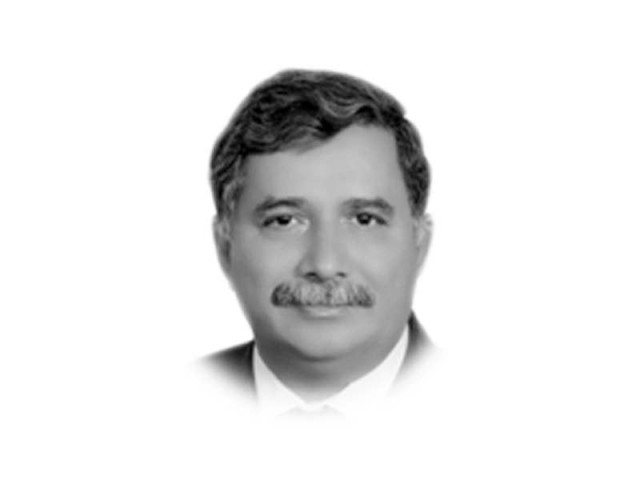Higher education in K-P and governance of universities — II
Quantity alone is not enough and what matters most is quality

The writer is a former Secretary Home and IG. He currently heads Good Governance Forum and can be reached at aashah7@yahoo.com
The university ecosystem has been disfigured by misdirected planning. A good test of the quality of education in any university is to compare the proportion of its annual expenditure on salaries with its non-salary expenditure which inter alia includes research, libraries, journals, and laboratories. The best universities of the world allocate up to 40-50% of their annual expenditure to research and other non-salary items but in Pakistan’s case, even our premier universities cannot boast more than 5% of total annual allocations to research, co- curricular and extracurricular activities. The vice- chancellors of our universities generally boast about high enrollment figures in various disciplines but they fail to recognise that their institutions do not meet the criteria laid down by the HEC and other accrediting bodies. For instance, undergraduate courses are being taught by community colleges to minimise costs.
Using a local university as a case study without naming it to protect its image, I am sharing some observed facts to shed light on the quality of higher education. Most of the BS programmes in the said university have yet to be granted accreditation but interestingly MPhil and PhD courses, in utter disregard of the directions of the Higher Education Commission, are being offered at the university. Even worse, the standard eligibility criteria for admissions have also been thrown to the wind.
Another disheartening episode is that the same University lost six PhD scholarships under the Faculty Development Programme, approved in July 2018, by not holding syndicate meeting for almost a year thus causing an irreparable loss not only to the university but also to the prospective scholars. Holding of syndicate meeting at least once every quarter is mandatory. But as the phrase goes in Pashto “Sok aey tapoos kai” (who cares?). Allegedly, one meeting was held, under the guise of the Faculty Development Programme to pave way for the promotion of some blue-eyed staff members.
that while presenting budget for the year 2019-20 before the Syndicate, the University provided the Annual Plan for 2016-17 rather than the one for 2019-20. Even worse, the 2016-17 annual plan too contained outdated information. The report reflected that several departments such as Geology, Chemistry and Agriculture could not hold meetings on a regular basis.
Worryingly, the mandatory requirements of auditing were also not met in the case of budgets for years 2018-19 & 2019-2020 as no internal or external audit reports were furnished. Similarly, under the Khyber Pakhtunkhwa Universities Act, 2012 the said University is required to set key performance goals for each branch, teaching department, academic and other statutory bodies. Unfortunately, the University could not present before the syndicate such key performance indicators that could be used to gauge the performance of the university and its various organs.
As if this was not enough, the university also suffers from the stigma of issuance of fake degrees and ‘Detail Marks Certificates’ by an organised mafia. The University, despite very clear directions of the Syndicate, Senate and Chancellor, could not complete inquiry into the matter, amidst allegations, to protect the blue eyed ones. The Governor, as chancellor of the university, had issued a directive for constituting a Committee of independent members, not directly or indirectly connected with the higher education institutions, to carry out a fair and transparent inquiry into the matter but this was not allowed to happen.
As the case study suggests, the higher education sector is in serious decline and the rot can be only arrested by urgent remedial measures. In this regard the selection process of Vice-Chancellors needs to be improved as discussed in the earlier part of this analysis. The appointments from BPS 16 up to 21 also need to be transferred to the Public Service Commission with a fair representation of the respective universities. Some other measures include increasing the number of independent members from a cross section of society in proportion to the staff members, stopping the opening of new departments till existing departments are fully strengthened, admissions to MPhil and PhD only after getting approval from the HEC and accreditation from the respective bodies, cancelling of all admissions not carried out under the semester rules and guidelines of the HEC, setting of key performance indicators for vice- chancellors and each unit of the university, allocation of forty per cent budget for Research and Development, development of linkages with industries and markets. Above all, performance audit by a reputed firm meeting international benchmarks should also be regularly done. Gross failures must be accounted for and all misdeeds placed under the carpet should be brought to the surface. Adherence to the legal framework and merit which are the hallmark of good governance, must be ensured.
The state of affairs in higher education is best summarised by Riaz Noor, a former chief secretary and secretary higher education, who in response to my earlier piece on the same topic remarked, “in 1970 when I applied for induction into the Oxford University, the degrees of Peshawar University were recognised for admission into Oxford. Now the University is not granted a recognised status by Oxford”.
Quantity alone is not enough. What matters most is quality. Nothing can be truer in the case of higher education. Hope policymakers are listening.
Published in The Express Tribune, July 17th, 2019.
Like Opinion & Editorial on Facebook, follow @ETOpEd on Twitter to receive all updates on all our daily pieces.














COMMENTS
Comments are moderated and generally will be posted if they are on-topic and not abusive.
For more information, please see our Comments FAQ